作者:Zen,PANews
本月初,通用的人机交互网络Billions宣布完成总计3000万美元的融资,Polygon领投,其它投资者包括Polychain、Coinbase Ventures、LibertyCity Ventures和BITKRAFT Ventures等加密及AI基础设施领域的知名机构。
就在消息公布后不久,Kaito旗下Web3众筹平台CapitalLaunchpad宣布,计划于8月6日上线Billions Network。根据 Kaito 实时监测数据,Billions 在近期链上活动中占比高达 8.03%,居其排行榜首位。脱胎于Polygon ID的Billions,经过在去中心化身份这个赛道上持续深耕,已经又做出了些新“名堂”。
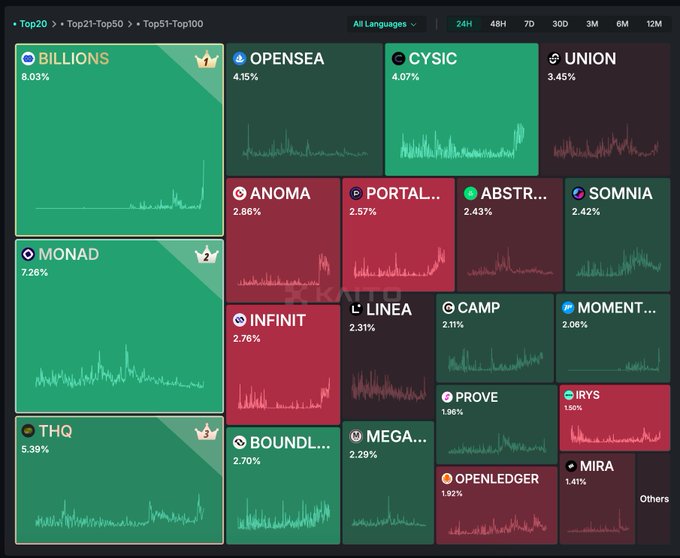
团队与产品均“脱胎”自Polygon
首次融资就募得3000万美元资金,除了因选择的数字身份验证方向被视为发展趋势外,也与Billions Network项目团队的历史渊源与多年的技术积累有关。Billions的前身为Privado ID,而后者原名则是Polygon ID,其于2024年6月开始从Polygon Labs独立出来后更名,并继续专注于链上数据的数字身份和声誉解决方案。
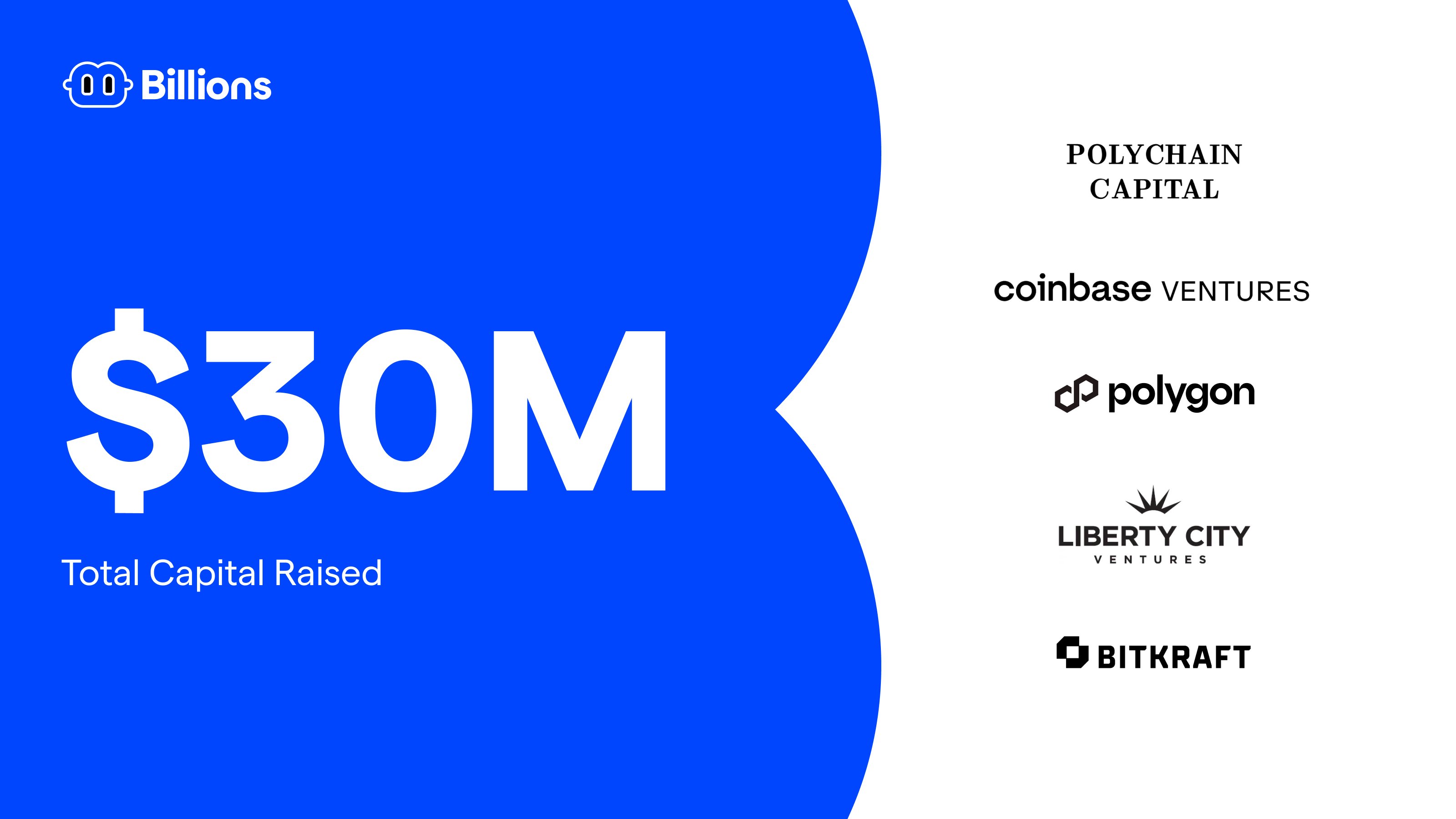
因此,Billions的核心团队与Polygon有着密不可分的关系,不少员工都有在Polygon工作的经历——其联合创始人David Z同时也是Polygon的创始人之一,曾任Polygon的首席技术官,并担任 Polygon ID、Polygon zkEVM 的项目负责人。此外,他也是基于以太坊的去中心化、零知识证明(ZKP)身份管理框架Iden3 协议的项目负责人。
Billions的另一个联合创始人Evin McMullen,也长期深耕于数字身份领域,她创建了去中心化身份管理平台Disco.xyz,并早期曾在Consensys担任项目负责人。2024年9月,Privado ID与Disco.xyz合并,以期加速创建和采用统一、跨链、连接 Web2和Web3生态系统的数字身份基础设施。Evin也由此加入团队,并兼任首席战略官,重点负责商业版块。
Privado ID独立后,Polygon的联合创始人Antoni Martin、Polygon zkEVM的核心开发者Jordi Baylina曾在团队担任首席运营官和技术顾问,Polygon Labs的联合创始人、现Polygon 基金会首席执行官Sandeep Nailwal担任增长顾问。
在向Billions的过渡过程中,Martin和Baylina似乎已离开团队或不再担任核心角色,两人近期均未与Billions互动,且X平台头像也没有像其他团队成员那样带上独特的“Billions风格”的面罩。不过,Sandeep仍将持续对Billions的增长提供支持。
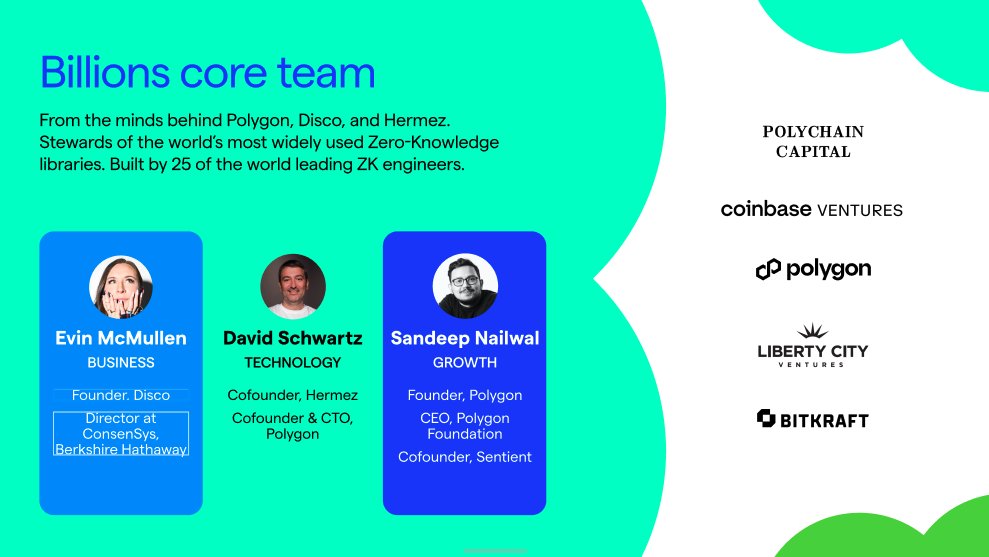
通用人机交互网络,官方称半年内吸引百万用户
今年2月,Privado ID 正式推出全新品牌 Billions,官方称其为全球首个人类 – AI 通用网络,旨在将移动优先、隐私优先的验证方式扩展到数十亿人类用户乃至未来的 AI Agent,为真实人类与人工智能代理之间建立可信交互的底层基础设施。
在 Billions 的设计理念中,其最具吸引力和颠覆性的是无需专用硬件设备,以及指纹、虹膜等生物特征,仅凭护照和手机即可完成验证。团队沿用了 Privado ID 累积的零知识证明(ZK)与可验证凭证(Verifiable Credential)基础架构,让用户通过手机摄像头拍摄活体或 NFC 快速读取护照,即可在数十秒内完成身份验证。而所有敏感信息都以零知识证明方式封装,并存储在分布式网络上。
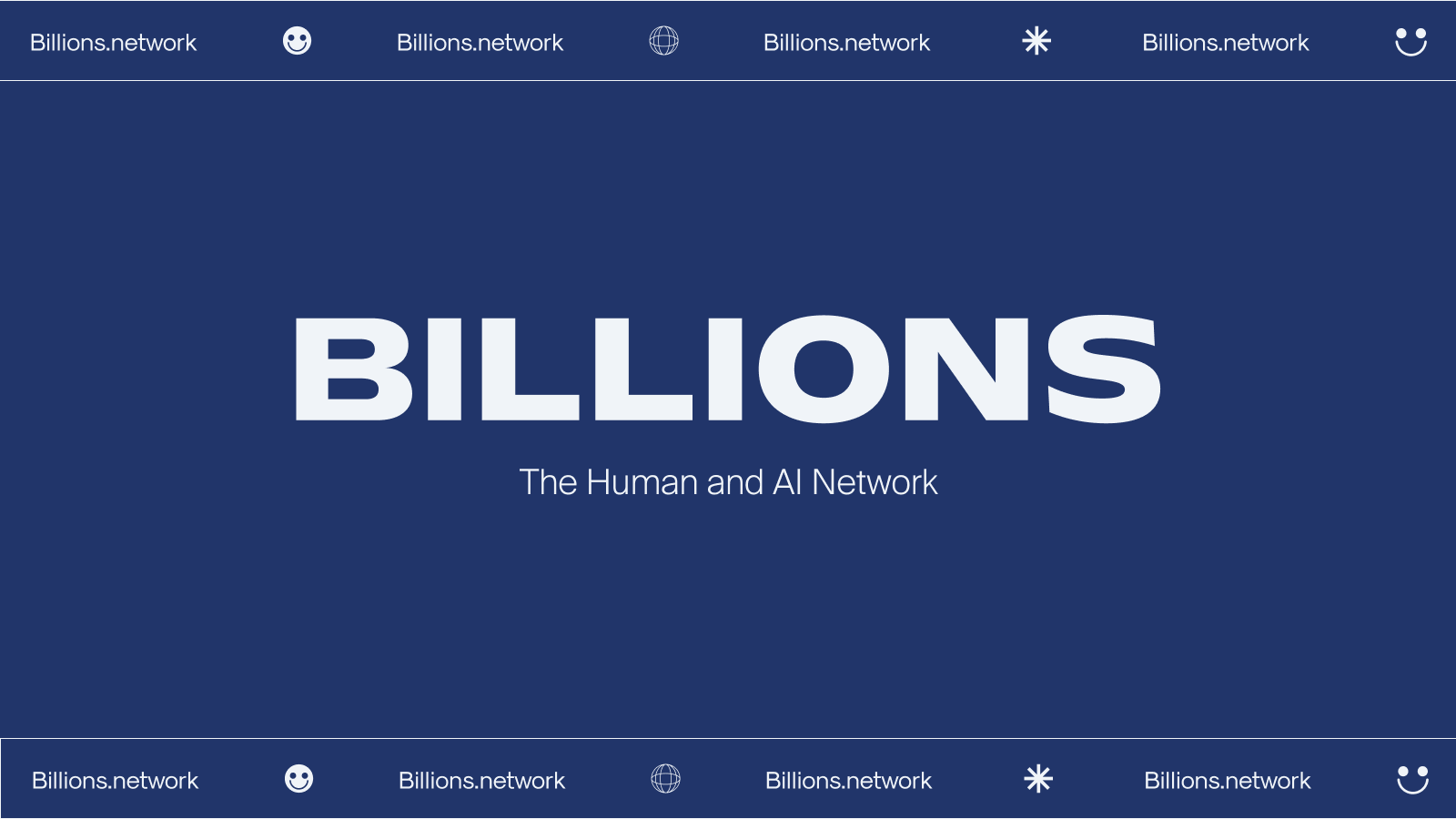
不同于以往只针对人类的“证明人类身份”方案,Billions 首次将这一思路扩展到 AI Agent:不仅人类用户可以生成、共享与撤回自身的身份凭证,AI 系统也能在 Billions 网络中验证其训练模型、操作行为与数据来源的真实性,从而在自动化客服、内容生成、风控审计等场景中,实现“人机共信”的信任闭环。从而能有效识别出可信的人类,避免人工智能深度伪造、机器人、杀猪盘等带来的安全风险。该网络提供统一的 API 和多端 SDK(涵盖 React、Vue、Android、iOS),帮助开发者在现有应用中快速集成身份验证功能。
今年6月,Billions 推出首款移动端 App,并宣传已在预注册阶段就吸引超过一百万用户排队体验。用户在 App 内完成验证后即可获得可重用的 Verifiable Credential,并可以通过“一次登录、多端通行”的方式,在所有已兼容的应用中快速完成身份授权。与此同时,用户还可通过验证、邀请好友等操作赚取 Power Points,用于解锁后续功能与专属激励。
除了面向个人的应用,Billions 也构建了 B2B2C 商业模式:基础验证服务按次计费,高级银行级/生物识别验证由企业自行洽谈;而网络中的联盟节点则通过手续费分润机制,获得稳定收益,以激励更多生态伙伴参与维护与治理。早期,Billions 已与 Aurora、Avalanche、Camp、Chaincode、Clique、Intract、Lagrange、Linea、Polygon、Qacc/Giveth、SingularityNET、Zeeze 等项目达成合作,共同推动隐私优先身份在去中心化生态中的应用落地。
在去中心化身份中平衡唯一性与匿名性
在早期,全球多数身份验证方案要么依赖中心化服务器存储敏感用户数据,要么诉诸生物特征识别硬件,既存在数据泄露风险,也难以在全球范围内普及。Billions 团队在六年前就率先贡献了开源的零知识证明(ZK)架构,包括 Circom 语言和 SnarkJS 库,奠定了去中心化身份的技术基础。据官方公告,作为使用最广泛的零知识证明库,Circom为Worldcoin、TikTok、Galxe、Scroll、Aptos 等9,000 多个项目提供支持。
经过在 Polygon ID 阶段与 Privado ID 期间的持续打磨,这套 ZK 身份协议逐步演化为今天的 Billions Network——一套专为移动设备优化、无需生物识别硬件、以护照与手机为验证凭证的全球化身份验证系统。
在 Billions 的核心产品中,Profiles 机制旨在解决Vitalik Buterin 在其数字身份论文中提出的“唯一性与匿名性难以兼得”这一悖论。Billions将每个应用都以客户端随机生成的 profileNonce 与用户主标识(genesis_identifier)共同散列,衍生出专属的去中心化标识(DID),从而实现去中心化的、无全局关联的多重身份。
由于 nonce 完全随机且在本地生成,任何服务器或发行方都无法追踪不同应用间的同一用户,这就天然防止了跨上下文的用户画像拼接与监控。与此同时,这一设计并不妨碍用户在必要时通过多方联合解密恢复其真实身份,实现可追责匿名。
为了兼顾去中心化与合规需求,Billions 网络还引入了 Context-Based Unique Identifier(CBUID)框架,让每个应用上下文中的唯一标识既可由任何类型的“唯一性证明凭证”延伸而来,又在默认状态下实现不可链接与不可辨识。这样,无论是基于护照的验证,还是未来可能扩展的生物识别验证,Billions 都能通过相同的密码学流程,保证验证结果在不同场合的隔离性,同时为各类监督审计提供可选的合规凭证类型。
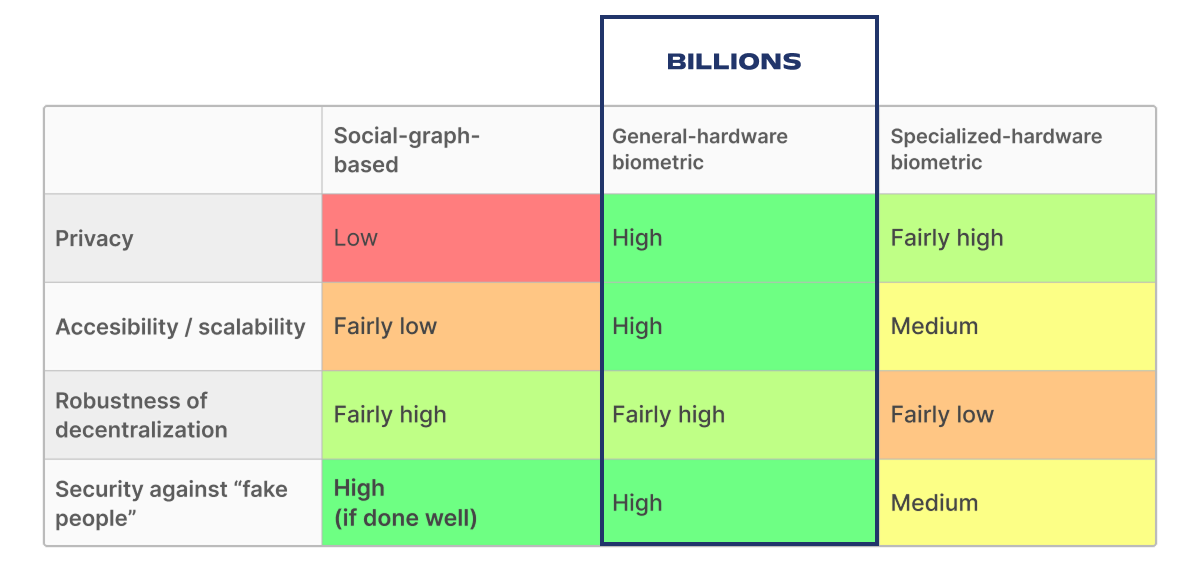
在用户体验层面,Billions.Network 移动应用现已在 iOS 和 Android 平台上线,呈现给终端用户的是一个极简的护照+摄像头或护照+NFC流程,而所有复杂的 ZK 证明生成、DID 管理与凭证封装均在客户端安全完成。
通过这一端到端的本地密钥管理,Billions 不仅避免了集中式数据库泄露的风险,还让用户对自身身份数据拥有绝对的控制权——他们可以随时选择在任意兼容服务中生成新的 Profile DID,或在怀疑密钥泄露时迅速进行密钥轮换,维护自身安全。
广泛生态布局,涵盖政府、机构与加密项目
在推出Billions Network后,项目团队于今年3月同SingularityNET达成合作,双方将合作构建去中心化的 AI 代理信任登记中心(Decentralized AI Agent Trust Registry),旨在为每一个智能代理颁发可验证的身份凭证,从而确保它们在新兴的“代理间经济”中既可追溯又可互操作。该合作赋予了 AI 系统与其创建者之间的透明关联,让使用者能够快速识别并信任背后的实体,进而在多智能体协同场景中避免角色冒用和责任模糊的问题。
今年7月,Billions Network 成为 AI 安全平台 Sentient 的“官方身份与信誉伙伴”,为 Sentient 的模型注册与运行提供隐私优先、可组合化的身份验证能力。通过将 Billions 原生的零知识证明(Circom)和可追责匿名(MPC)技术整合到 Sentient 的审计流程中,Sentient 能在不暴露用户与模型训练数据的前提下,对训练来源、行为轨迹和输出结果进行可信度背书,大幅提升 AI 安全监测与威胁检测的效率与精确度。值得一提的是,Polygon 联合创始人 Sandeep Nailwal 是Sentient 的是联合发起人与核心贡献者。
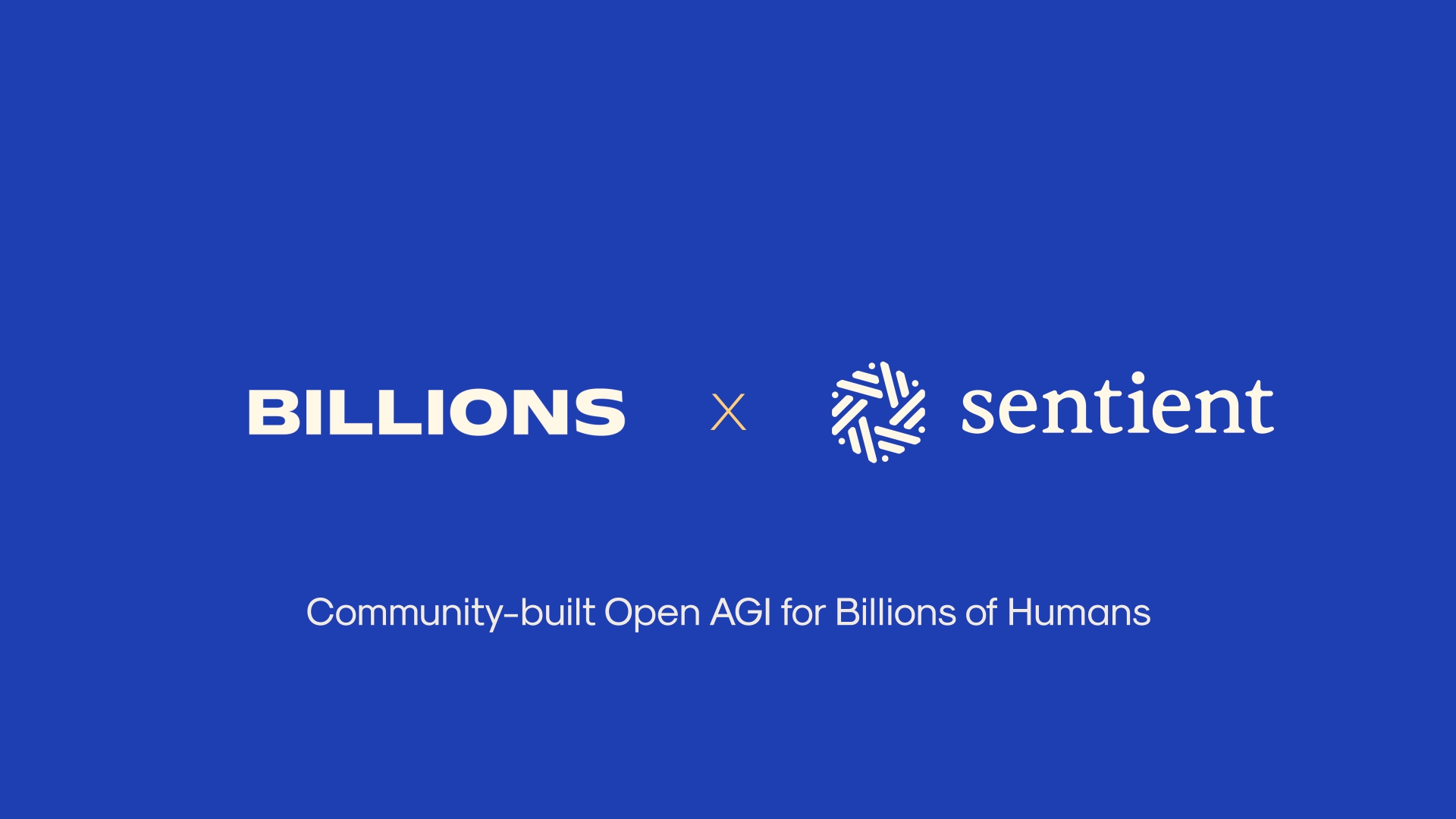
此外,Billions (或 Privado ID)也与德意志银行(Deutsche Bank)与汇丰银行(HSBC)已在多次联合概念验证(PoC)中采用了 Billions 的去中心化身份验证系统,证明了其可扩展性和可靠性。
据 VentureBeat 报道,Billions Network 亦与印度政府合作,将国家级身份体系 Aadhaar 集成进其平台。借助 Privado ID 多年的技术沉淀,Billions 为 Aadhaar 用户提供“可验证凭证”的数字身份服务,确保其护照与手机号验证在去中心化网络上安全、高效地流转。
不过,涉及数字身份、隐私、AI与加密货币技术,且以全球化为目标的Billions Network,因其跨境数据流动与合规性设计,将不可避免地将受到监管方面的压力。
8月6日,中国国家安全部微信公众号疑似点名Worldcoin,其发文称某境外公司以发放加密货币代币为噱头,在世界范围内扫描收集用户虹膜信息,并将数据源转移,给个人信息安全甚至国家安全带来威胁。
虽然Billions Network摒弃了采集指纹、虹膜等生物特征识别技术,但对于监管部门而言,其在数据安全的可靠性上仍然需要商榷。在真正的全球化落地中,其依旧需要面对多国监管、数据主权和安全审计的挑战。
免责声明:本文章仅代表作者个人观点,不代表本平台的立场和观点。本文章仅供信息分享,不构成对任何人的任何投资建议。用户与作者之间的任何争议,与本平台无关。如网页中刊载的文章或图片涉及侵权,请提供相关的权利证明和身份证明发送邮件到support@aicoin.com,本平台相关工作人员将会进行核查。




